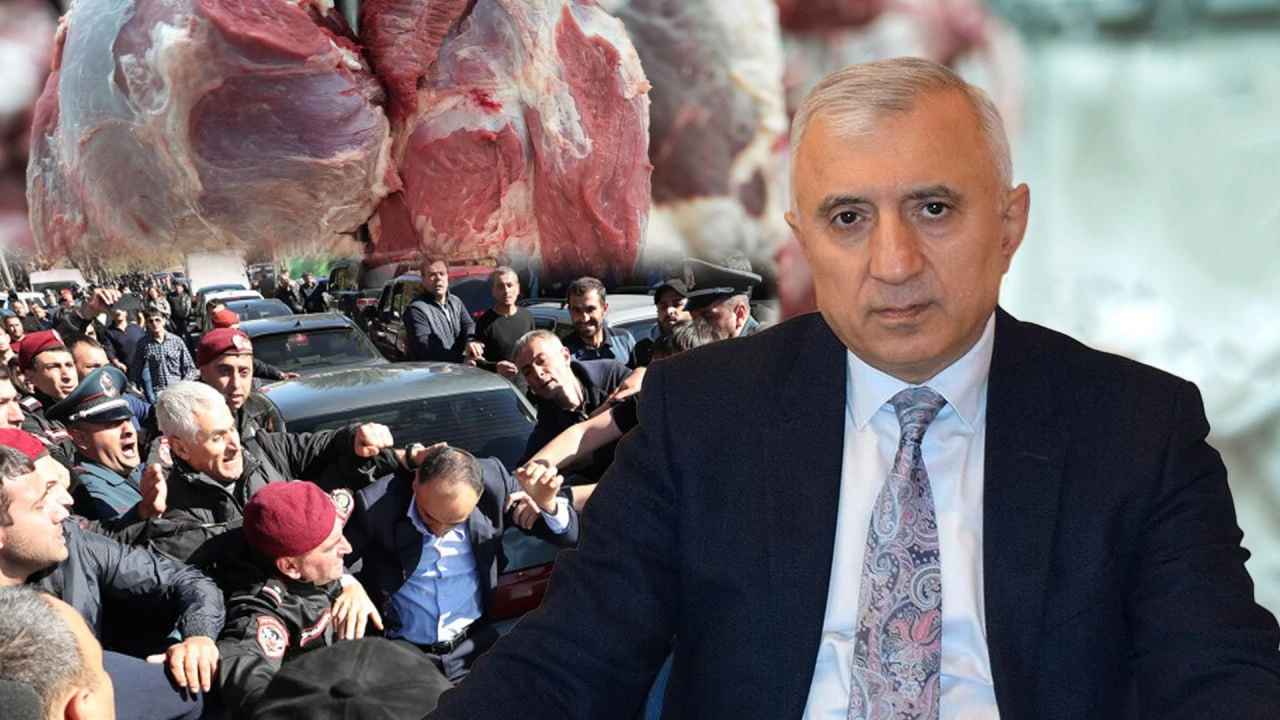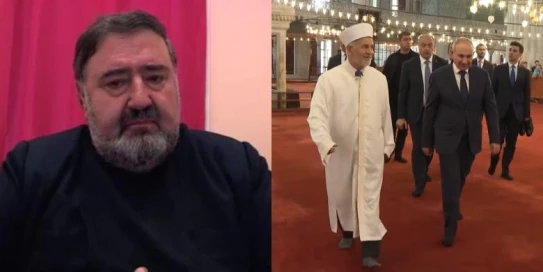The recent incident with the participation of SAPM employees and reinforced police units in the Gum market ended with arrests Here is our interview with Doctor of Law, Professor Gevorg Danielyan.
- Mr. Danielyan, who is to blame for selling uncontrollably large quantities of meat to citizens for a long period of time before the well-known arrests in the "Gum" market: the butcher or the control body?
- There are areas of supervision, in which the only reasonable application methodology is the inspection function, which in itself implies periodicity, because it is not legal and logical to schedule inspections, to warn 3 days in advance, to obtain permission for re-inspections, etc.
Therefore, in this case, the so-called inspections typical of the Soviet system are not only inapplicable, but also ineffective. And when this basic condition is ignored, the consequences are inevitable in the form of generating unnecessary conflicts and social dissatisfaction. Obviously, food safety is an extremely important issue , but the solution is not only the situational regulations related to slaughterhouses by consistently making demands and using various means of coercion, ignoring that it is necessary to create the minimum conditions of expected legal behavior. Everything is perceived as a hopeless dimension of preventing unacceptable behavior under the influence of fear. Any manifestation of public discontent is unconditionally perceived as illegal behavior.
Moreover, in such an atmosphere, the reasonable expectations of the citizens are also reduced, they are already satisfied with talking about secondary issues, not hoping that the systemic solutions are realistic. but the lack of basic conditions for using that service.
Basically, the vacuum is filled not by the hard-working meat producers, but by the private entities that came to replace the imperfect state structures, which independently solve the transportation, sale and all other related issues of meat products. It is typical that slaughterhouses are even exempted from the duty of transporting animals, etc.
We should add that viewing inspection visits as an alternative to regular inspection functions may lead to corruption risks. the public cannot quite justly assume that the employees of the structure, which for a long time did not carry out regular control and gave preference to noisy inspections that only provided imitation of work, were not able to prevent illegalities.
- After all, the method of slaughterhouse fur became law a long time ago, and nothing was reported about warning visits and fines. Let's not forget the statement about the inspection visits of the SATM official at the scene, which was denied by several butchers standing in front of him at that very moment, and the official had no counter-argument. If there are no slaughterhouses in the regions, which puts into serious doubt that the organization of fur is completely carried out in those slaughterhouses, only formal documents are issued, shouldn't this also become the subject of supervision by the same SATM and other supervisory bodies? they insist on the formality of the documents and justify that the state showed haste in adopting the law, because the resources of the slaughterhouses are obviously incomplete.
- The management structures and procedures of the sector are so flawed and vulnerable that the formation of unacceptable practices is simply not excluded. First, of course, the implementation of appropriate control in slaughterhouses is also reserved to SAPM, it is clearly established by the law "On State Control of Food Products", which 21 The authority of the official in that field is also regulated by the Article.
In essence, this control cannot be effective, because the procedure itself is not complexly regulated. In order to make animal husbandry attractive, it is necessary not only to set various requirements, but also to accompany them with minimum conditions. For example, if the transportation of livestock was regulated, in particular, if it was carried out professionally by the slaughterhouses, then the owner would not even think about overcoming this concern in a technical way, he would not be concerned at all about the number of slaughterhouses. and distance, would not look for alternative services of private entities.
At the same time, legal solutions would lead to significant and universal saving of funds, transportation would become much more efficient.
- In the case of confiscation of meat, after weighing and documenting, isn't it a prerequisite to accompany the meat with a representative of the businessmen, and the presence of journalists in order to carry out all the processes transparently and properly after the confiscation? During the incident of these arrests, the other sellers of the same meat market were openly removing the meat from their stalls in the presence of a large police force, and when the police saw them, they did not even try to prevent the removal of uncut meat from the area and its possible sale. What is this talking about?
- Business people do not need to be accompanied, but weighing and recording in the prescribed manner is an absolute requirement of the law. Moreover, any violation of the administration is a basis for not only compensating the damage caused by illegal administration, but also applying disciplinary measures.
On the other hand, what is worrying in this case are the situational and, I think, unconstitutional legal regulations. Thus, an unequivocal requirement was set for the destruction of illegal food products. This innovation was carried out hastily, without a deep analysis and study of international best practices 2023 by the law adopted on October 3.
First of all, the law on unconditional destruction is clearly disproportionate, since other additional conditions are taken into account in the case of other foodstuffs, and the initiative has nothing to do with international best practices.
EU countries, for example, check the quality of food in illegal circulation, and if it is found to be safe, return it to the owner or, in extreme cases, hand it over to a zoo with a proportionate fine. Ultimately, the law is about the safety of the food itself, not It is about excluding the circulation of safe food. Moreover, in those countries, everything is done so that illegal circulation is not perceived as a tempting and profitable activity.
It is also sad that, in reality, completely new challenges of food safety have appeared, starting with the manifestations of genetic engineering, and it is not even realistic to talk about these very urgent questions, until it is practically possible to handle even the most accessible questions. By the way, complex scientific research on the legal aspects of genetic engineering is currently being carried out at YSU Faculty of Law.
- And about the army of red berets of the police. was there a need for their large presence at the meat sellers during the regular visit of the SATM? If it was just another inspection, as the SATM official was trying to assure, then why did they contact the police special forces in advance?
- The law mentioned by me provides sufficient powers of control: inspection, monitoring, auditing, etc. Moreover, they should be applied in a reasonable proportion so that there is no need to resort to sudden inspections, which are not provided by law, as such applied to the necessary extent and grounds, then not only would there be no need for such inspection visits, but also there would be no need for the heavily burdened police forces called to fight crime involve in these works.
Current crime rates should suggest that seeking the assistance of the police should not be taken for granted.
Basically, these services also realized that their way of conducting inspections will unintentionally lead to unnecessary clashes and resistance, so they applied for the support of the police forces in advance. that unorganized practice does not exclude such developments.
Within the framework of one interview, it is not possible to comprehensively address all the nuances of your questions, simply summarizing what I have to say, I consider it appropriate to emphasize that any issue of administration, any problem can be solved and guarantee the necessary efficiency, excluding public dissatisfaction, and in that context, imitation and unprofessional working style should not be allowed. find a place in our lives. Moreover, each chain of the management system must be harmonized with the others. If, in the conditions of the urbanization of this place in Yerevan, it is not possible to implement at least the "single window" principle of administration in a short period of time, then we will have even more heavy traffic with vehicles (people visit one state body in order to take the required certificate and deliver it to another state body). , unacceptably large paperwork and other negative phenomena.
There is nothing preventing the state bodies from communicating properly with each other, exchanging the necessary data, instead of putting that burden on the citizens.
Suzy Badoyan


